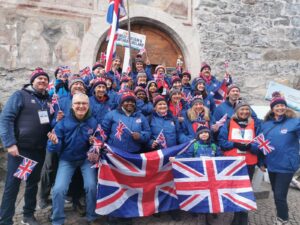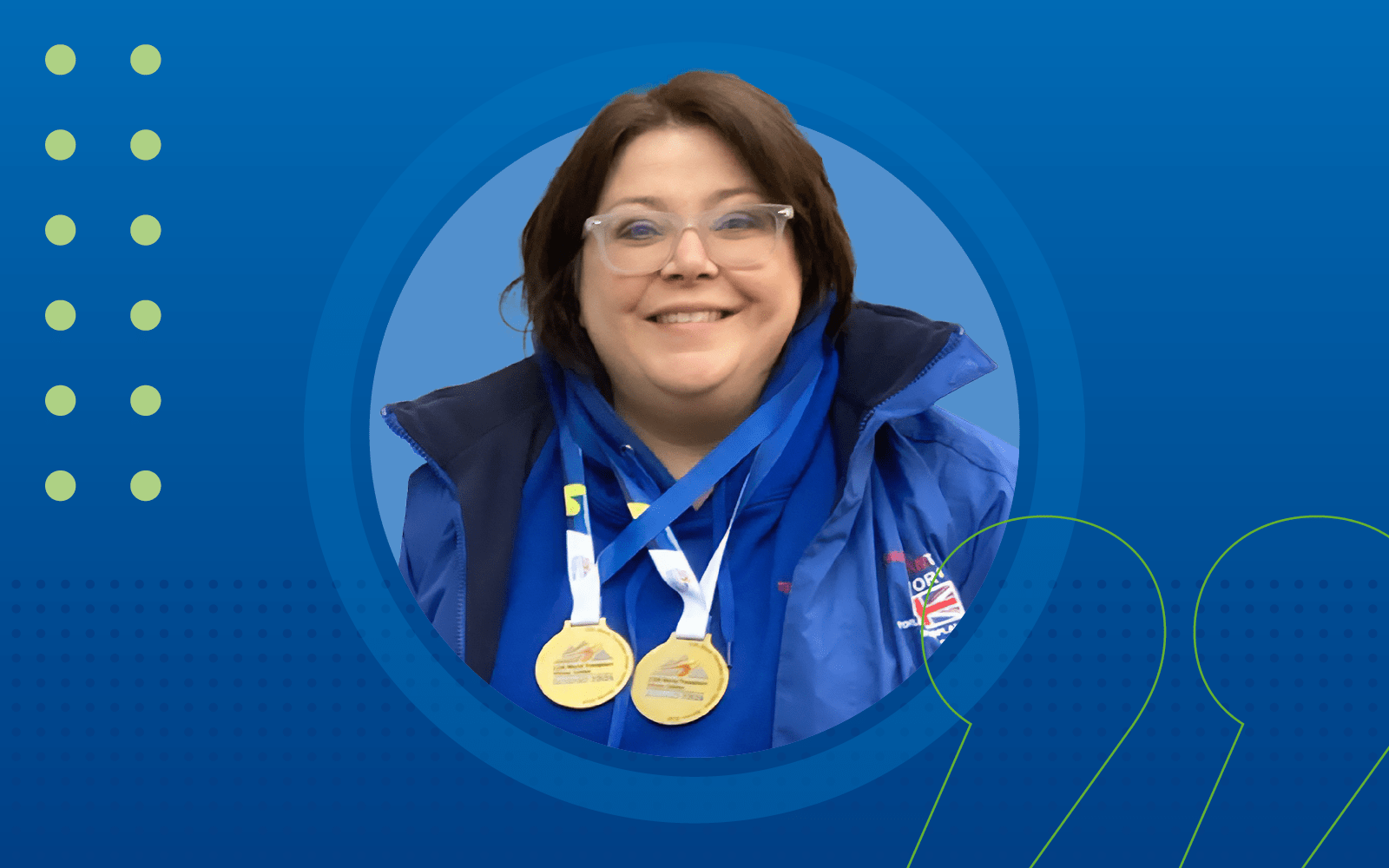Linda Owen, Business Development Lead for NECS tells us about being part of the British team for the 2024 World Winter Transplant Games which took place last week. Linda tells us about winning two gold medals at the games, her heart transplant journey and reminds us how important and easy it is to join the NHS Organ Donor Register.
“The World Transplant Winter Games, usually take place every two years and are supported by the International Olympic Committee. Due to the pandemic, the last time the Winter Games took place was 2020 in Banff, Canada. The aim of the games is celebrating life by demonstrating the benefits of transplantation and paying tribute to our donors.
“Twenty-five teams took part in the games between the 3 – 8 March in Bormio, Italy. I am part of the Great Britain and Northern Ireland team, who were the largest team in attendance, with 50 competitors. Our team comprised of 19 transplants, eight live donors and three donor family members, plus supporters and volunteers. The team competed in a range of alpine and nordic events ranging from downhill skiing and snowboarding, cross country skiing, bilathalon, snowshoeing and curling. The 2024 games included teams from Europe, Australia, and North America, with around 150 competitors taking part.
“This was my third time competing in these games, and it was my most successful to date. I won gold in the 2km snowshoe race for my age category, which I was thrilled about. I also won another gold medal as part of the curling team. I started curling when I was at school and have played every season since.
“At this year’s games, Great Britain and Northern Ireland topped the medal table with 16 Golds, eight Silvers and five bronze medals. We won medals in skiing, snowboard, snowshoe, cross country skiing and curling, which is a fantastic team effort.
“I qualify for the games because I had a heart transplant nine years ago after being diagnosed with dilated cardiomyopathy. My heart had swollen, so wasn’t pumping properly and was causing me to have shortness of breath and to retain fluid. I didn’t feel great, but I had put my symptoms down to being 34 weeks pregnant with twins. I spent five weeks in hospital where the twins were born. I received a new heart and had enough post-surgery rehabilitation to go home. I am one of the lucky ones. I am forever grateful for my donor for signing up to be an organ donor, and also to their family for honouring their wishes.
“I have received lots of support from my team and NECS. I have to take a careful balance of immune suppressing medication to ensure I don’t pick infections or that my body rejects my heart. As such, I am supported to work at home to minimise my risk of infection. My colleagues in Business Development have been a fantastic support these past couple of weeks with words of encouragement and watching live streams of the curling when they could.
“Just to give you a bit of background, the law on organ donation has changed in England. From May 2020, all adults in England are now considered to have agreed to be an organ donor when they die unless they have recorded a decision not to donate or are in one of the excluded groups.
“Surprisingly, organ donation can only happen in a small number of cases, as organs need to be transplanted straight after someone has died, as they need to be in a good condition. Donors are usually people who have died in a hospital intensive care unit or accident and emergency department, which equates to 1 in 100, which isn’t a lot when around 500,000 people die in the UK each year. This makes organ donation so precious.
“I encourage everyone to let their families know if they want to be an organ donor nor not, to ensure they know your wishes, as they will be involved in the process after death. This will give them peace of mind knowing that their decision is being honoured. Faith and beliefs will also always be taken into consideration before organ donation goes ahead.
“Sadly, every day across the UK someone dies waiting for an organ transplant. Age, medical conditions are not necessarily a barrier to organ donation. One donor can save up to nine lives through organ donation and can save and transform even more by donating tissue.
“Currently, there are almost 10,000 people in need of a lifesaving organ transplant in the UK and over 7,000 of these are on the active waiting list. I urge you all to join the NHS Organ Donor Register, it’s quick and easy to join, call 0300 123 23 23 or visit www.organdonation.nhs.uk”.




